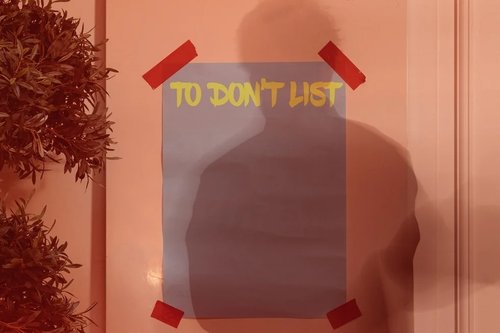Avoiding burnout in your next job: are statistics the best indicator?
Jun 14, 2023
5 mins


Writer
When you’re passionate about what you do for work, it can be easy to overlook the consequences of clocking in too much time at the office. Hours pass by in the blink of an eye, and powering through the day becomes your norm. Add to this a society that moves faster than ever and growing concerns about layoffs and job loss, and you have a recipe for potential burnout.
According to a 2022 report from Future Forum, workplace burnout is at an all-time high, with 42% of respondents reporting that they experienced burnout in their job. This is a 2% increase from when Future Forum started measuring employee burnout in May 2021. While workplaces might try to rectify burnout with health and wellness programs for their employees, some industries are naturally more prone to increased stress and long hours, leaving candidates to wonder whether a career in these fields is even worth it.
So, are burnout rates something you should consider when applying for your next job? To find out, we spoke with Katja Trmcic, a Personal Success and Career Coach, who shares what she’s discovered about burnout, what contributes to it, strategies to combat it, and how to assess if a career path is right for you—or if it will burn you out.
What is burnout?
The World Health Organization (WHO) describes burnout as “a syndrome conceptualized as resulting from chronic workplace stress that has not been successfully managed.” While burnout is not an official medical diagnosis, it is included in the International Classification of Diseases. Per the WHO definition, burnout is an occupational phenomenon specific to the workplace and should not be used to describe other life experiences.
Symptoms of burnout include feeling exhausted and depleted of energy, negative feelings, cynicism, or mental distance toward your job, and reduced professional efficacy.
Is burnout about the job, or is it the individual?
How exactly do you assess what will cause burnout, and why can some people avoid burnout even in high-pressure jobs while others struggle? Trmcic suggests it often depends on the person. Before dismissing a career path as stress-inducing, you might want to self-reflect, assess the workload you can (and want) to take on, and be honest with yourself about your ability to set boundaries.
“Burnout can happen in any career. I’ve found that burnout is more connected to certain personality traits of employees than the actual career itself,” Trmcic notes. “It’s about an employee’s ability to set boundaries, which is a skill that needs to be learned, especially in a professional environment. Unfortunately, many of us—myself included!—learned this the hard way.” For Trmcic, the game changer to avoiding burnout is building the capacity to say no rather than taking more on. “We tend to assume that if something is asked of us, we have to do it,” she begins. “But the employee needs to realize it’s okay if they can’t do it all.”
What other factors contribute to job-related burnout?
External factors also contribute to burnout, many of which have to do with relationship dynamics and organizational issues in the workplace, such as a lack of understanding of an employee’s role and responsibilities. “Often, roles are very loosely defined, and it’s up to the employee to give feedback back to the employer and let them know when they’re at their capacity and can’t complete all of the tasks they were given,” Trmcic says. “Our managers are not mind-readers—we must tell them when it’s too much and that we’re struggling.”
Other workplace-related factors Trmcic identified include insufficient recognition or reward for employee contributions, supervisors with poor leadership skills, and misalignment in values between the employee and their workplace “Some workplaces are simply not organized in a healthy way. It’s not up to the employees to make up for the employer’s chaotic way of functioning,” Trmcic says.
How can you determine if a job or workplace will burn you out?
One of the best things you can do to avoid burning out is to get ahead of it. Some industries are known for having a lack of work-life balance. In particular, Trmcic notes that human services, finance, entertainment, education, and healthcare stand out, as well as small to midsize companies experiencing growth without the structure to support it.
Trmcic suggests conducting research on burnout rates in the industry you’re interested in and talking to people who are already in it. You can ask them questions such as:
- What do they like about their job?
- What don’t they like about it?
- What do they wish they knew at the beginning of their career journey?
- What does a day in their role look like?
On top of doing research and looking at company reviews, knowing yourself and what you need is also vital to combatting potential burnout. “Have a firm understanding of what you need for a healthy work-life balance,” Trmcic begins. “When you develop self-awareness of how much you can take on beforehand, it positively affects your mental and physical well-being. Advocate for yourself.”
Trmcic says you can advocate for yourself by communicating your boundaries, learning how to say “no”, and establishing a healthy self-care routine that prioritizes sleep, rest, time outdoors, social connections, and physical activity.
Key takeaways: should you consider burnout rates when applying for jobs?
The tricky thing about burnout is that it’s something you only start to recognize once it’s already started. “Burnout often needs to be experienced in order to stop, reflect, and consciously start implementing better habits in our personal and work life. But it doesn’t have to be that way. It’s a very hard way to learn,” Trmcic affirms. Here are the key takeaways Trmcic outlines to assess whether you’re more susceptible to burnout and how to get ahead of it.
- Some groups might be more susceptible to burnout than others. “I often see burnout among women, the immigrant population, and younger professionals in the first few years of their career,” Trmcic says. She points out that immigrants (as an immigrant herself, she knows this experience first-hand) often feel so grateful for an opportunity that they go the extra mile. “We don’t understand that the company didn’t hire us to do them a favor, but because we are a great hire with a lot to offer,” she says. Women also face a higher risk of burnout often due to their social conditioning, unequal pay, and household pressures (particularly in the context of Covid-19).
- Certain industries are also more susceptible. High-pressure situations contribute to increased burnout rates in particular industries. In Trmcic’s work, she’s observed this in particular in the medical, financial, and entertainment fields. “I see a lot of pressure for high performance that is often unrealistic. In some cases, that leads to extreme and unhealthy behaviors such as using stimulants—from overuse of caffeine to prescription stimulants,” she mentions.
- Ultimately, you hold the power to reduce burnout. Rather than taking an external approach to burnout and looking at data or information regarding burnout rates when looking for jobs, take the time to understand and identify your limits and keep yourself accountable. “Ask yourself: What would I like my work-life balance to look like? What are my non-negotiables? What do I need to live a happy and fulfilling life?” Trmcic offers. “You have the power to co-create your work life. Speak up. Ask questions. Allow your supervisor to address the situation. If nothing changes, you have your answer and can move on to a job that’s right for you.”
Photo: Welcome to the Jungle
Follow Welcome to the Jungle on Facebook, LinkedIn, and Instagram, and subscribe to our newsletter to get our latest articles every day!

More inspiration: Applying for jobs

Should you job hunt over the holidays? Tips to beat the new year rush
Searching for a new job to start fresh in 2025? The holiday season might be the right time for you to start the process.
Dec 09, 2024

Introverts & extroverts: Strategies to ace your interview
Job interviews can be tough, whether you're a social butterfly or a quieter introvert. The key to standing out is being yourself.
Aug 20, 2024

Should you be scared of the ghost job trend?
Have you ever been ignored after applying for a job? You may be a victim of the ghost job trend.
Jun 12, 2024

Lost in translation: Decoding bizarre job descriptions
“Candidates with no sense of humor need not apply.” Um …
Jan 25, 2024

Nailing your job search: Writing a to-don’t list for success
Don’t want this, don’t want that … Writing down things you want to avoid in a new job could be your job-hunting key.
Jan 18, 2024
The newsletter that does the job
Want to keep up with the latest articles? Twice a week you can receive stories, jobs, and tips in your inbox.

Looking for your next job?
Over 200,000 people have found a job with Welcome to the Jungle.
Explore jobs